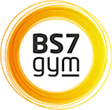20 July 2017
Bristol Half Marathon takes place on Sunday 17th September and with spaces remaining and just under 2 months to go, we have provided some key half marathon training tips.
We have picked out 6 common training mistakes a person can make, and tips on how to correct these, to take you on the road to a successful half marathon!
1. Only running to train
You may think a running race means ‘let’s get out and just run’. Yes obviously you do need to run to build up stamina and get used to those longer distances, but it is also important to undertake resistance training. Resistance training will help strengthen the body and make it more resilient to injury. A common problem of just running is it can lead to overuse injuries as your repeating the same action again and again for a long period of time.
2. Increasing training distances too quickly
As they say slow and steady wins the race! Increasing your training distances too quickly can lead to injury, leading to a halt in your training which is a setback you do not want. A good rule is to increase your training distance by no more than 10% per week. Even if you are a little short on time and the maths doesn’t get you to the full distance before the race, do not bump up the distance to compensate. It’s better to be a little short on training distance, but fit and well so you can push it on race day.
3. Not using a taper
A taper is when you reduce your training volume (the distance ran) as the race day approaches. Your last long full run should generally be around 2 weeks before race day and the final run should be reduced to around 40%. A taper allows your body to recover from any stresses from your last runs, meaning you’re fully recharged and ready to go on the big day.
4. Not fuelling your body correctly
Keeping it simple:- A car needs petrol to run, your body needs fuel (food) to move! Making sure you get the correct balance of carbohydrates, protein and fats so your body will be able to perform and recover at its best potential.
• Complex Carbs help to keep energy levels up and provide important fibre. (wheat, corn, rice, oats, barley, quinoa, starchy vegetables and legumes)
• Protein levels will need to be increased during training to help with muscle repair and hormones synthesised. (fish, eggs, lean meat, beans and pulses)
• Fats, including saturated fats, are essential as they are an energy source and forms the building block of cell membranes and allows the travel of vitamins. and so it is vital to help the body repair and recovery. (fish, nuts, avocados, seeds)
Speak to one of our Personal Trainers to find out more about nutrition
5. Hydration
Dehydration adversely effects performance, especially in longer duration, endurance based events. A 2% level of dehydration can lead to a 10% decrease in performance, so it is vital to get this right. You can calculate a good estimate of fluid loss from training by weighing yourself before and after the session to see how much weight you have lost (due to sweat) and as a litre of water weighs 1kg you will know much to replace. Don’t forget you may also need to replace salts (electrolytes) lost, which can be done through widely available sports drinks or hydration solutions available from chemists.
6. Weak glutes and abdominals
Faulty glutes and lack of strength can also predispose to injury and reduce performance. Using some glute activation exercises in separate sessions or as part of your prep before a run a can greatly improve your running. Some examples of exercises are, straight leg raises, brides, aeroplanes, running man and a there is a plenty of others.
Straight leg raises Bridges
The same is true of the abdominal muscles and they play an important role in running. Try exercises from the dead bug range and superman’s to help develop activation and endurance. These can also enhance your running technique by holding your pelvis up at the front and stopping unwanted anterior rotations.
Final note:
Remember on race day to prepare all your kit the night before!
Aim to arrive at the race nice and early to avoid any issues and try not to do anything new on the day of the race, for example, run in new trainers, and most importantly enjoy yourself. Good Luck!
We hope you have enjoy our half marathon training tips, keep a look out for more content coming soon!

